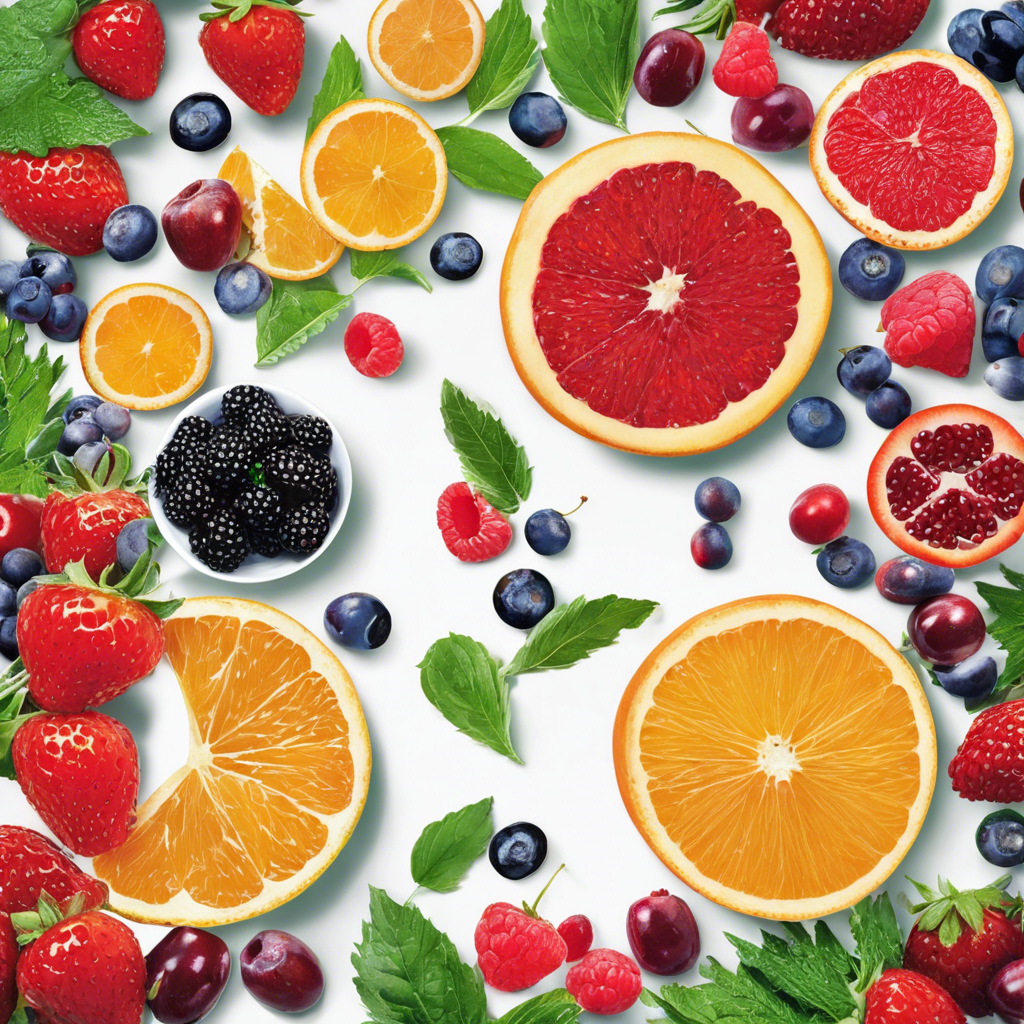Free radicals are highly reactive molecules that can cause extensive damage to our bodies if left unchecked. They are produced naturally in the body as a result of normal cellular processes, but environmental factors like pollution, radiation, and cigarette smoke can also increase free radical levels. The harmful effects of free radicals have been implicated in a myriad of diseases, from cancer and cardiovascular disease to Alzheimer’s and Parkinson’s. This is where antioxidants come into play – they are our body’s defense mechanism against these harmful molecules.
Antioxidants are substances that can neutralize free radicals, thereby preventing them from causing damage to our cells and DNA. They do this by donating an electron to the highly reactive free radical, stabilizing it and stopping it from stealing electrons from other molecules, which initiates a chain reaction of cellular damage.
Our bodies produce some antioxidants naturally, such as glutathione and Coenzyme Q10. These internally-produced antioxidants work together with externally-sourced antioxidants from our diets to provide a comprehensive defense system against free radicals. A variety of vitamins, such as vitamin C, vitamin E, and beta-carotene, which the body converts into vitamin A, all have antioxidant properties and are essential for maintaining good health.
Plant-based foods are particularly rich sources of antioxidants and are key to reaping the benefits of these powerful compounds. Brightly colored fruits and vegetables, nuts, seeds, grains, and legumes all contain an array of antioxidants, each offering unique protective qualities. For example, the deep purple color of blueberries comes from anthocyanins, powerful antioxidants that have been linked to improved brain function and a reduced risk of heart disease.
Incorporating more plant-based foods into your diet is an effective way to increase your antioxidant intake. The Mediterranean diet, which emphasizes the consumption of fruits, vegetables, legumes, whole grains, fish, and healthy oils, is renowned for its health benefits, largely due to its high antioxidant content. Spices and herbs also pack a powerful punch when it comes to antioxidants, with cloves, cinnamon, and oregano topping the list.
While a balanced diet rich in plant-based foods is the best way to ensure adequate antioxidant intake, sometimes supplements are needed. However, it’s important to note that not all antioxidant supplements are created equal, and excessive supplementation may even be harmful. Always consult a healthcare professional before taking any supplements to ensure they are right for your individual needs.
The power of antioxidants in disease prevention lies in their ability to neutralize free radicals and stop them from causing cellular damage. By including a variety of plant-based foods in your diet, you can naturally increase your antioxidant intake and arm your body with the tools it needs to defend against disease. The protective effects of antioxidants are a key component in maintaining overall health and lowering the risk of chronic conditions.
To illustrate the benefits of antioxidants in action, let’s look at an example of their role in eye health. The eyes are particularly susceptible to oxidative damage due to constant exposure to light and high oxygen levels. This can lead to the development of cataracts, a clouding of the eye lens that results in blurred vision. Antioxidants, particularly lutein and zeaxanthin, found in green leafy vegetables, can accumulate in the eye and help protect it from this light and oxygen-induced damage, thereby reducing the risk of cataracts.
Another area of interest for antioxidant research is in sports performance and recovery. Exercise increases the body’s metabolic activity, leading to a higher production of free radicals. While this is a natural process, excessive free radical levels can cause muscle fatigue and impaired performance. Antioxidants can help counterbalance these effects, and studies have shown that they may even improve muscle strength and recovery. For example, the antioxidant epigallocatechin gallate (EGCG) found in green tea has been linked to improved muscle recovery and endurance in athletes.
Additionally, antioxidants play a crucial role in skin health and aesthetic medicine. Free radicals contribute to skin aging by damaging collagen and elastin fibers, leading to wrinkles and loss of elasticity. Antioxidants, both topically applied and consumed through diet, can help protect the skin by neutralizing these free radicals and preventing this damage. For example, vitamin C is a potent antioxidant that is commonly used in skincare products to help brighten and protect the skin.
The role of antioxidants in disease prevention also extends to mental health. Oxidative stress has been implicated in the development of various neurological disorders, including depression and anxiety. Antioxidants, such as N-acetyl cysteine (NAC), have been found to have neuroprotective effects and may help improve mood and cognitive function. Studies suggest that NAC can help reduce symptoms of depression and anxiety, possibly by reducing oxidative stress and promoting the production of the neurotransmitter glutamate.
While the benefits of antioxidants are extensive, it’s important to remember that they work as part of a complex network of nutrients and compounds in our bodies. A varied and balanced diet that includes an array of colorful plant-based foods will ensure your body has all the tools it needs to fight off disease and maintain optimal health. As with most things in life, balance is key, and a holistic approach to nutrition that focuses on whole foods is the best way to harness the power of antioxidants.
